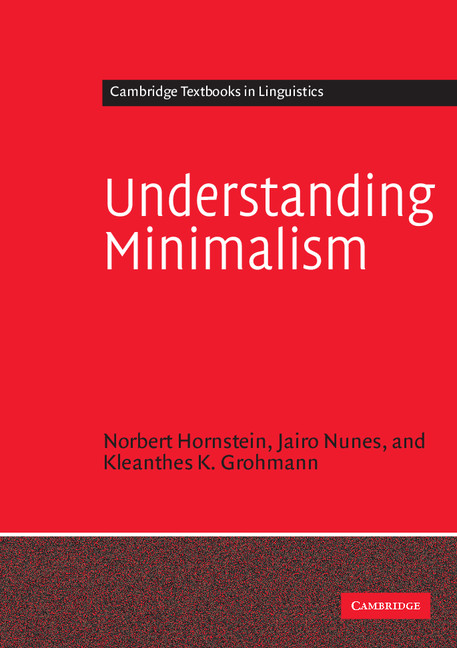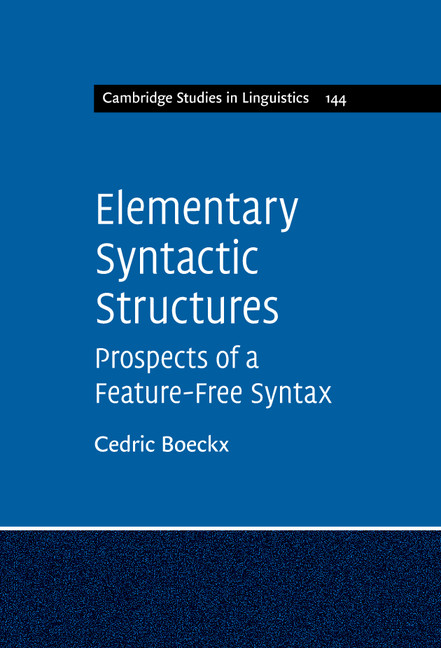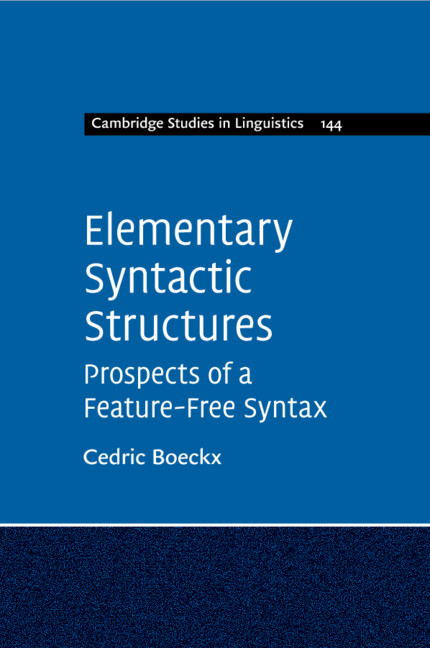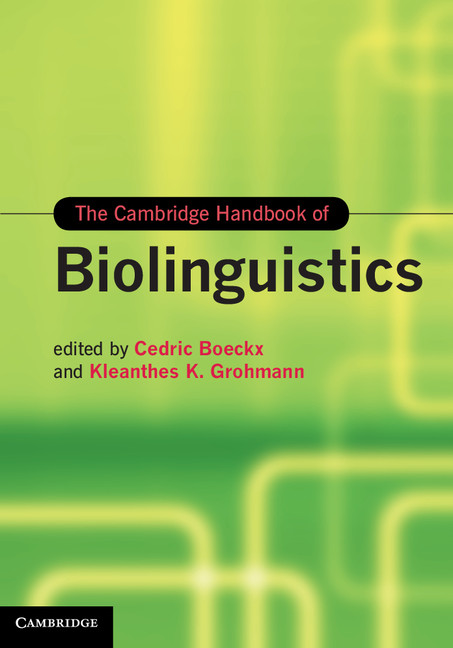The Cambridge Handbook of the Minimalist Program
The Minimalist Program is a long-established branch of Chomsky's Generative approach to linguistics, which, since its first incarnation in the early 1990s, has become one of the most prominent frameworks for syntax. Bringing together a team of world-renowned scholars, this Handbook provides a comprehensive guide to current developments in generative syntactic theory. Split into five thematic parts, the chapters cover the historical context and foundations of the program, overviews of the major areas of research within modern syntactic theory, and a survey of the variety of phenomena dealt with within Minimalism through a focus on concepts, primitives, and operations. It offers in-depth perspectives on the core concepts and operations in the Minimalist Program for readers who are not already familiar with it, as well as a complete overview of the state-of-the-art in the field, making it essential reading for both scholars and students in the field.
- Provides a complete, up-to-date picture of the different topics pursued within the Minimalist Program
- Connects core syntactic operations with externalization processes in both spoken and sign languages
- Brings together different operations and primitives that are relevant to the study of language from a theoretical point of view
Product details
November 2025Hardback
9781108836197
800 pages
244 × 170 mm
Not yet published - available from November 2025
Table of Contents
- List of figures
- List of tables
- List of contributors
- Preface
- Part I. The Big Picture:
- 1. The minimalist program in the 2020s: theory, methodology, and the road ahead Evelina Leivada and Kleanthes K. Grohmann
- 2. Minimalism as the latest stage of generativism Norbert Hornstein
- 3. Early minimalism Howard Lasnik
- 4. Phase theory: inception, developments and challenges Irene Fernández-Serrano
- 5.Minimalism and a meaning first view Uli Sauerland and Artemis Alexiadou
- 6. Principles of UG and the minimalist program David Adger and Ian Roberts
- Part II. Issues of Labeling:
- 7. Labeling theory Andreas Blümel
- 8. Movement as a labeling device: some outstanding problems Caterina Donati
- 9. Labeling without labels Chris Collins and Daniel Seely
- 10. What we lose if labels are not in syntax and how we can get it back Antonio Fábregas
- 11. Recursion in sign languages Carlo Cecchetto
- 12. Economy Marc Richards
- Part III. The Realm of Merge:
- 13. Basic operations Winfried Lechner
- 14. Merge, move, and contextuality of syntax: the role of labeling, successive-cyclicity, and EPP effects Željko Bošković
- 15. Merge Jan-Wouter Zwart
- 16. Merge: internal and parallel Barbara Citko
- 17. Merge and the formal recognition of the workspace Hisatsugu Kitahara and Daniel Seely
- 18. Copy and move: a brief historical review Victor Junnan Pan
- 19. Distinguishing copies and repetitions Chris Collins and Erich Groat
- 20. Copy theory and sideward movement Jairo Nunes
- Part IV. Structural Concerns:
- 21. Phrase structure Dennis Ott
- 22. Locality and (minimal) search Kenyon Garrett Branan and Michael Erlewine
- 23. Anti-locality Norvin Richard
- 24. Why we need roots in minimalism Phoevos Panagiotidis and Vitor Nóbrega
- 25. Minimalism and morphology Laura Kalin, and Philipp Weisser
- 26. Late insertion Faruk Akkuş
- 27. Structural implications of late insertion Peter Svenonius
- Part V. Features and Agree(ment):
- 28. The syntactic limits of probe–goal (a)symmetries Sandhya Sundaresan and Hedde Zeijlstra
- 29. Features Ora Matushansky
- 30. Phi-feature agreement in syntax Omer Preminger
- 31. Agree Roberta D'Alessandro
- 32. Agree(ment) in sign languages Josep Quer
- 33. Φ-feature sharing Stefan Keine
- Part VI. Towards the Interfaces:
- 34. Cyclicity Claire Halpert
- 35. The domain of transfer Alan Hezao Ke
- 36. Linearization (as part of core syntax) Cristiano Chesi
- 37. Linearization of sign language structure Carlo Cecchetto and Josep Quer
- 38. Linearization: there are no strings William J. Idsardi and Eric Raimy
- 39. Spell-out Aritz Irurtzun
- 40.Spell-out and its consequences on the PF branch Tobias Scheer
- Index.











